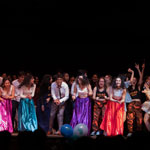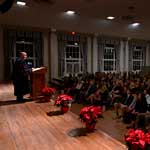
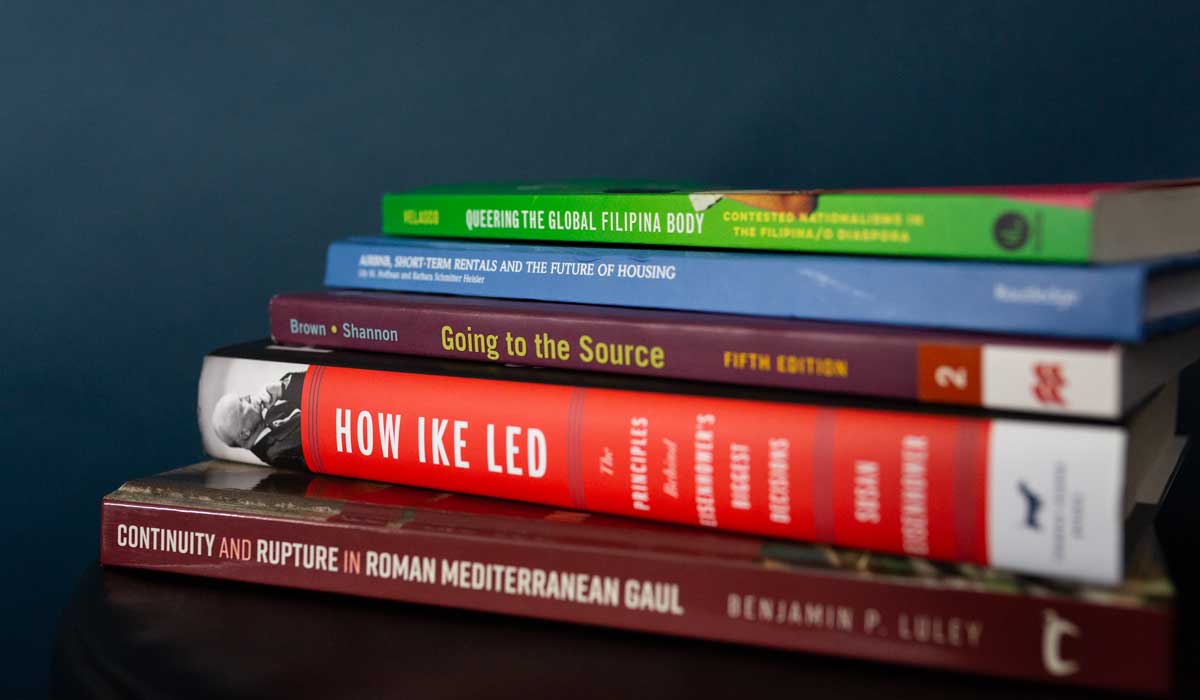
At Gettysburg College, our faculty are endlessly curious and passionate about what they do. This curiosity and passion not only exists in the classroom as they teach and mentor students to learn, grow, and pursue meaningful work of their own, but it also is a fundamental part of the lives they lead outside of the classroom. When they’re not teaching, they’re researching and pursuing new projects within their academic areas of expertise.
In 2020, 13 Gettysburg faculty, staff, and emeriti members of the College community published 14 major works that explore their professional interests. These works, which include textbooks, audiobooks, and historical nonfiction, extend across a variety of departments and disciplines, ranging from environmental studies to biology, English, and women, gender, and sexuality studies.
Read the full roundup below.

“America’s Public Lands: From Yellowstone to Smokey Bear and Beyond, Second Edition”
By Randall Wilson, Thompson Endowed Chair and Prof. of Environmental Studies
How it is that the United States—the country that cherishes the ideal of private property more than any other in the world—has chosen to set aside nearly one-third of its land area as public lands? Wilson considers this intriguing question in his book, tracing the often-forgotten ideas of nature that have shaped the evolution of America’s public land system in this second edition.
The first edition of this book, which won the J.B. Jackson Award from the Association of American Geographers, ended with events taking place in 2013. But so much has happened in the past seven years that it was critical to update the text. The result is a fresh and probing account of the most pressing policy and management challenges facing national parks, forests, rangelands, and wildlife refuges today.
“I have always had a deep love for the outdoors, often expressed in spending time in our national parks, forests, wilderness areas, and wildlife refuges. This led me to a career that has allowed me to study, teach and write about environmental issues,” Wilson said. “My favorite part of the job is introducing students to such places. This book is the culmination of over 20 years of doing just that.”
Wilson hopes that readers come away with a deeper appreciation for the tremendous public land heritage that we all share in the United States.
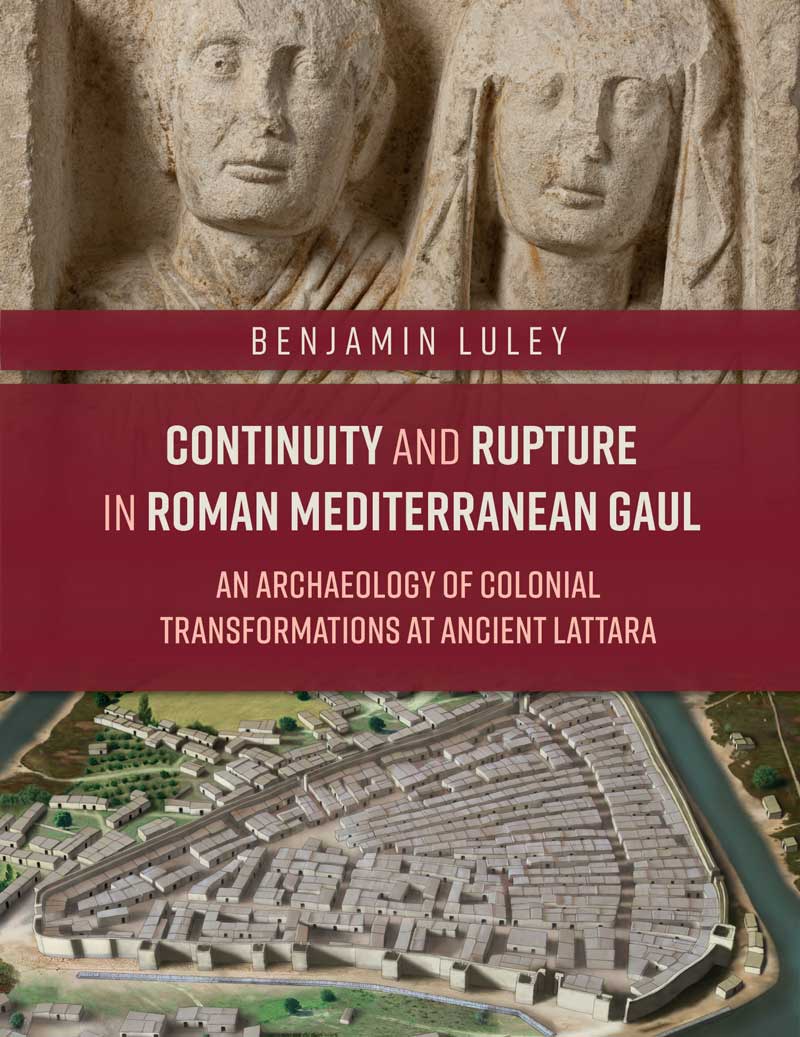
“Continuity and Rupture in Roman Mediterranean Gaul: An Archaeology of Colonial Transformations at Ancient Lattara”
By Assistant Anthropology Prof. Benjamin P. Luley
“This book is based upon my participation in the archaeological excavations at the site of ancient Lattara in Mediterranean France over the past 15 years. Many of the larger ideas and themes from the book also come from a class I teach here at Gettysburg College: ANTH/CLA210: ‘Civilizing’ the ‘Barbarians’?: The Roman Empire in a Comparative Perspective, which takes a critical, post-colonial look at the Roman Empire and compares it with more recent instances of colonialism,” Luley said. “In that regard, I am grateful for all the great ideas and participation of my students in class, as well as the hard work (under a hot, Mediterranean sun!) of the Gettysburg College students who worked with me at the site of Lattara during the summer.”
His book explores the ways in which one community of Celtic speakers within the larger world of the Roman Empire (ca 100 BCE – 200 CE) lived and died under Roman rule, and how Roman colonialism significantly reshaped social relations and interactions within this community at the local level. At a general level, he hopes that it helps to counteract many assumptions people often have about the putative “benefits” of empire and economic integration.
“More specifically, hopefully, my book provides more historical and material evidence for the ways in which colonial rule often has an overwhelmingly negative and traumatic impact upon local communities, at the same time as local peoples still manage to assert Indigenous identities and ways of being in the face of widespread exploitation and human suffering,” Luley said.
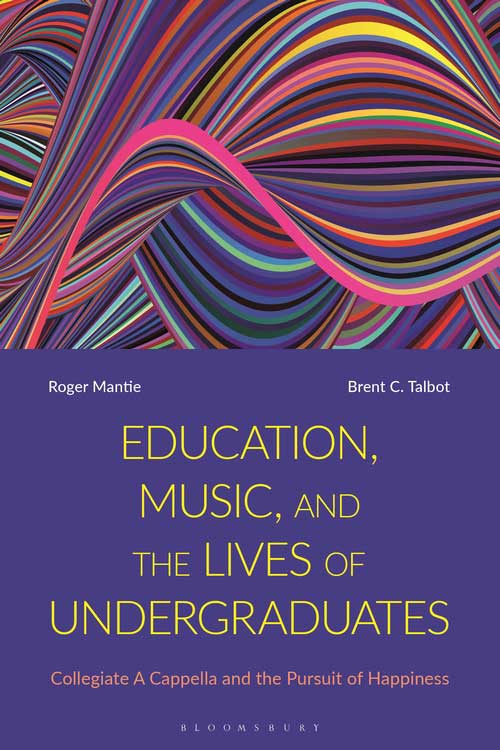
“Education, Music, and the Lives of Undergraduates: Collegiate A Cappella and the Pursuit of Happiness”
Co-authored by Associate Sunderman Conservatory of Music Prof. Brent Talbot
This book, written by Talbot and co-author Roger Mantie of the University of Toronto, started as an idea for a short journal article—a collaboration based on a shared curiosity about amateur musicmaking and its intersection with formal music education. It grew into a labor of love undertaken over the course of nine years.
The work unfurls over eight chapters, examining how those involved with collegiate a cappella “make sense” of recreational musicmaking within the context of their educational experience and how they place it within the broader contexts of their lives. It also delves into participants’ motivations, social bonds, and how a cappella sheds light on issues of gender, sexuality, diversity, and class.
“The more time we spent researching, the more we realized that a cappella is representative of the many issues found in school music programs surrounding gender, sexuality, race, and class and that all these things intersect to create and perpetuate various hierarchies,” Talbot said. “Our book works towards expanding the definition of who is labeled a ‘musician’ and challenges the unspoken language in formalized music education that sends signals to people that they’re ‘not musicians’—inadvertently creating unarticulated barriers to lifelong musicmaking.”
Read the full story on Talbot’s new book.
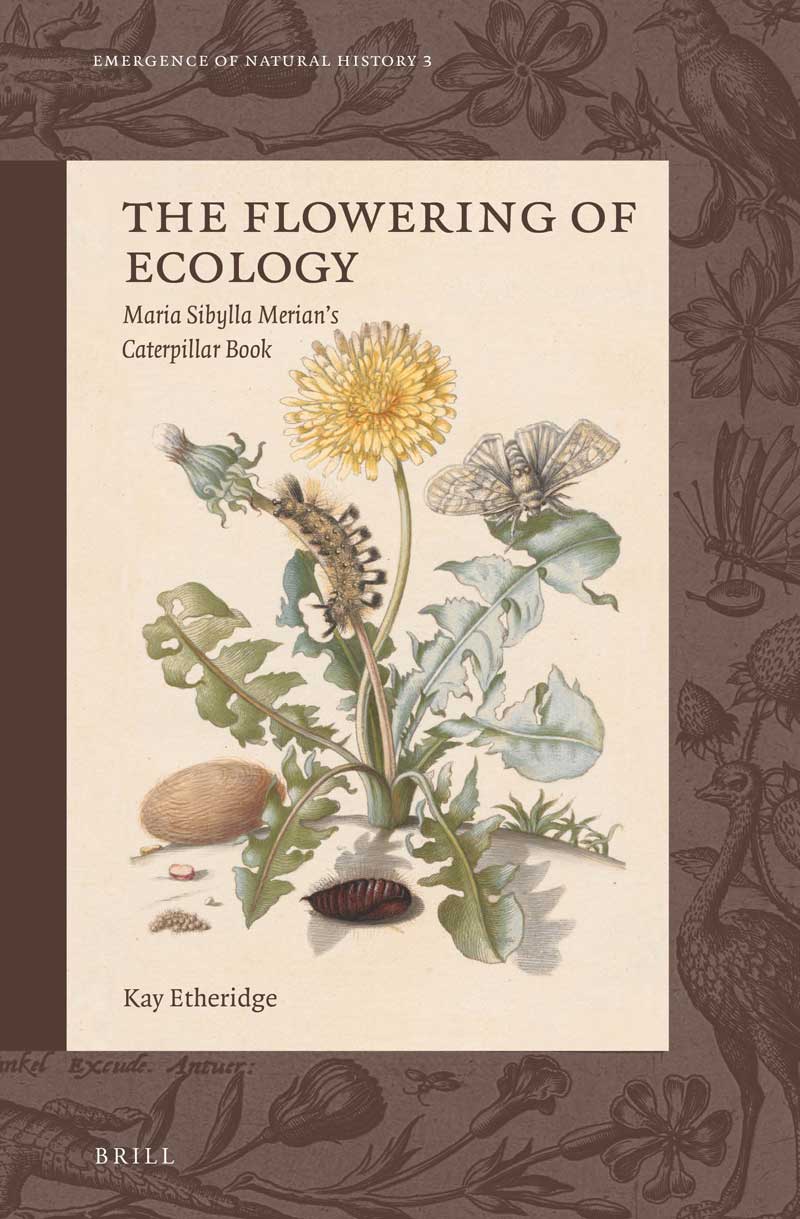
“The Flowering of Ecology: Maria Sibylla Merian’s Caterpillar Book”
By Biology Prof. Kay Etheridge
“The Flowering of Ecology” presents an English translation of Maria Sibylla Merian’s 1679 caterpillar book, “Der Raupen wunderbare Verwandelung und sonderbare Blumen-Nahrung.” Her processes in making the book and an analysis of its scientific content are presented in a historical context. Etheridge analyzes the 1679 caterpillar book from the viewpoint of a biologist, arguing that Merian’s study of insect interactions with plants, the first of its kind, was a formative contribution to natural history.
“Merian’s artwork has been much appreciated, but has overshadowed her scientific research to a great degree. I wrote this book to describe her many contributions to our understanding of the interactions of insects and plants. The goal was to describe her process and findings from the viewpoint of a biologist,” Etheridge said.
She hopes that readers learn that Merian’s research on insects withstands the scrutiny of modern biology, as the number of original observations in her work is astounding in an era when most biologists focus on one or two organisms in their career.
“Her ecological compositions created a new view of nature, which has been so frequently copied as to become one of the standard ways of presenting natural history illustrations,” Etheridge said.
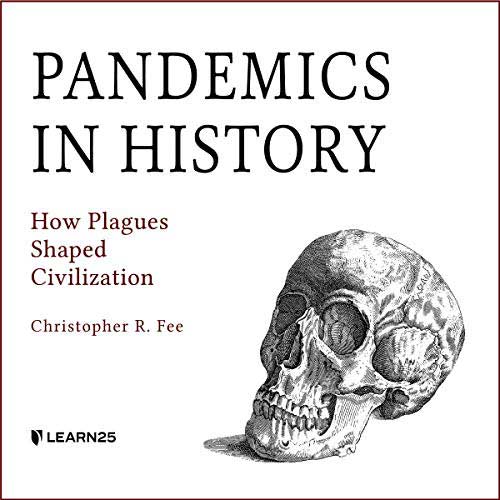
“From Black Death to Zombie Apocalypse: Great Plagues in History & Literature”
By English Prof. Chris R. Fee
Plague has terrified and fascinated humanity for all of recorded history. For the past year, people around the globe have again struggled to learn how to navigate life during a pandemic.
In his new audiobook, Fee explores the history of the literature of plague, starting with the Bible and ancient poets, playwrights, and historians, and moving on to some of the greatest works of the Middle Ages and Renaissance that were inspired by or reflect aspects of the infamous Black Death. Entering the Modern Age, Fee examines works by authors that employ plague as a metaphor. Along the way, he delves into popular books and movies, such as “12 Monkeys,” that take on plague as a subject or subtext. He concludes this work by discussing how the literature of plague has much to teach us—not just about the current moment, but also about the very nature of being human.
“Ultimately, much of the literature of plague offers glimmers of light and hope in the midst of darkness and despair. These works often invite us to embrace the kind of courage it takes to flip the bird at injustice, disease, and despondency,” Fee said. “What the past year of life in ‘the upside down’ should have taught us is that if we can be our best selves in times of adversity, we can make the world a better place every single day just by allowing our candle to shine in spite of the darkness. As Albert Camus puts it in the closing passage of ‘The Plague,’ ‘What we learn in time of pestilence: That there are more things to admire in men than to despise.’”
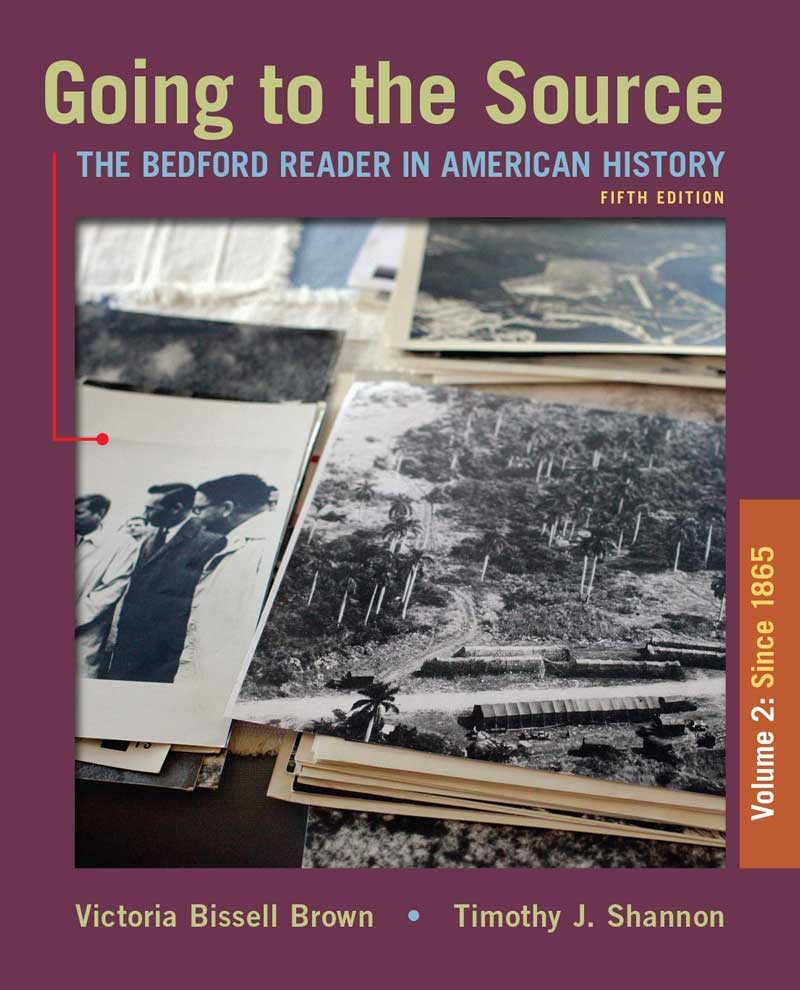
“Going to the Source: The Bedford Reader in American History, Fifth Edition”
Co-authored by History Prof. Timothy Shannon
“Going to the Source: The Bedford Reader in American History” is a two-volume textbook intended for students in college-level American history courses. Each chapter introduces students to a different kind of source, such as Civil War photography or Supreme Court opinions, that historians use to study the past.
Shannon collaborated with co-author Victoria Brown on the first four editions of this book, but upon her retirement, he took over the entire project for this new edition.
“The fifth edition includes two new chapters, including one on oral histories of people who were present at the Siege of Wounded Knee in 1973. Working on this chapter gave me a chance to re-connect with Samuel Herley ’00, who is the curator of the Oral History Center at the University of South Dakota,” Shannon said. “I hope students who use this book will come to appreciate the variety of sources used by historians to reconstruct the past and perhaps learn something about doing history themselves.”
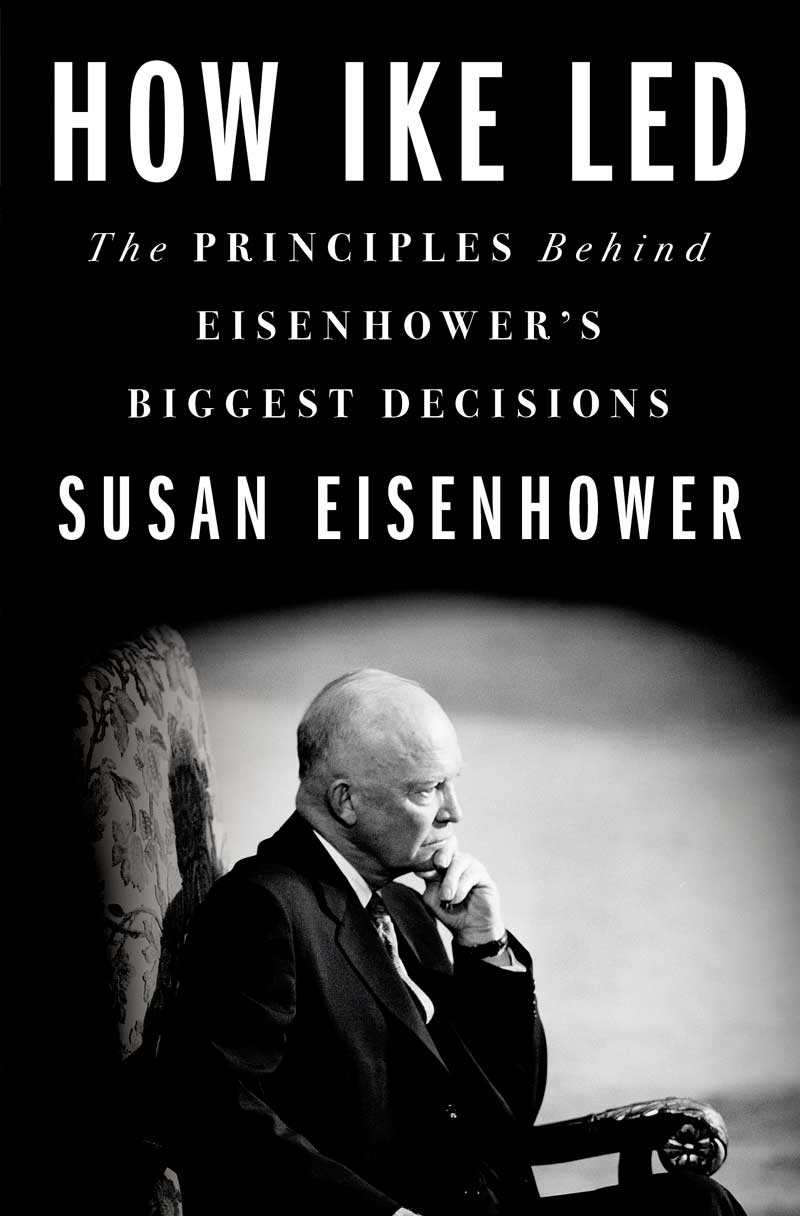
“How Ike Led: The Principles Behind Eisenhower’s Biggest Decisions”
By Susan Eisenhower, Expert-in-Residence at the Eisenhower Institute and Chairman Emerita
“‘How Ike Led’ is fundamentally a book about the intersection of strategy and what I think of as real leadership,” Eisenhower said. “This is a vital topic at this period of American history. Too many people today in positions of responsibility assume a short-term view of the issues they are dealing with and fail to seek the consensus necessary to develop and act on a clear set of goals. Eisenhower’s overarching goal was to unite American citizens and make our system one of hope and fairness to Americans of all ‘races, colors, and creeds.’”
Tucked beneath the monochrome cover on the dedication page, Eisenhower writes to her Gettysburg College Strategy and Leadership in Transformational Times (SALTT) students and to the rising generations across the country, dedicating How Ike Led to them.
“I wanted my SALTT students, as well as College undergrads and rising generations, to know Eisenhower—not just his accomplishments as a leader. There were other vital elements he possessed, including character, focus, and empathy,” Eisenhower said. “It has been a great privilege for me to interact with my Gettysburg EI students and, in the context of my new book, I believe that Ike has a lot to say to them.”
Read the full story on Eisenhower’s new book.
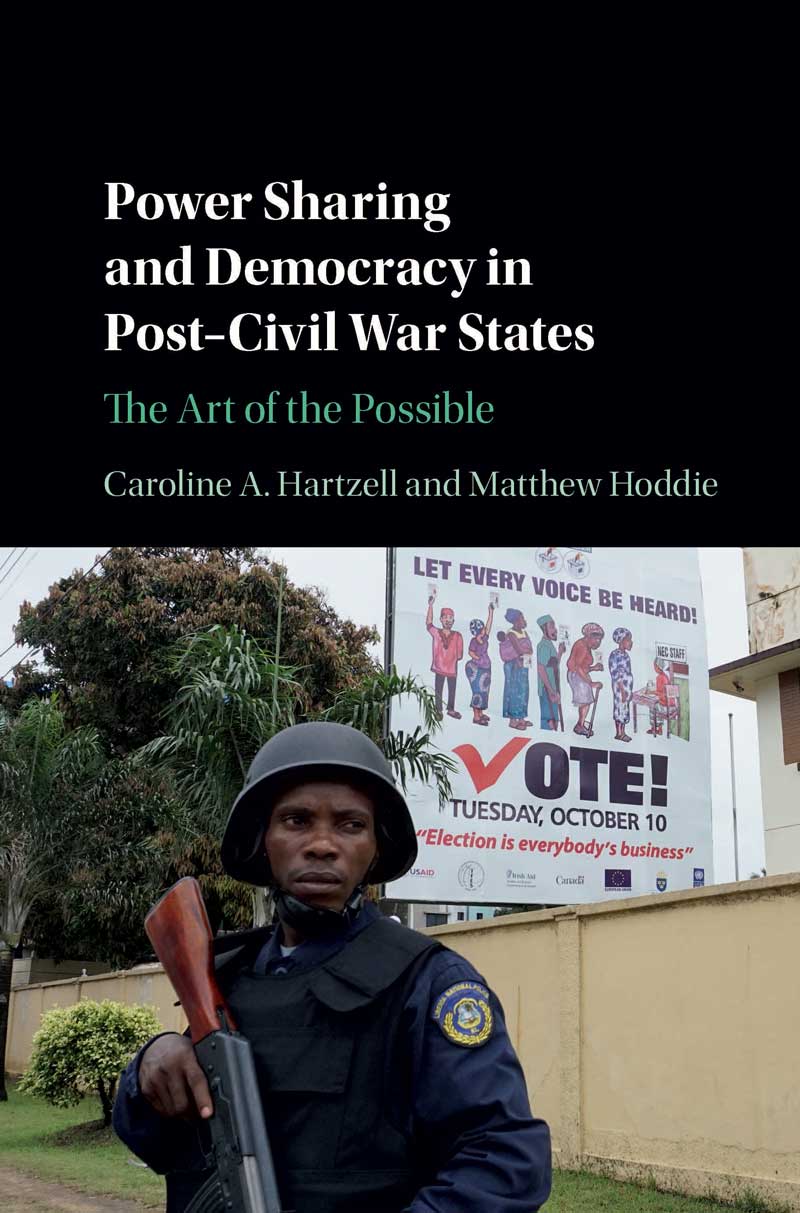
“Power Sharing and Democracy in Post-Civil War States: The Art of the Possible”
Co-authored by Political Science Prof. and Chairperson Caroline A. Hartzell
This book advances the argument that, following civil wars, societies need not choose between security or democracy, as often has been argued. Rather, power-sharing arrangements arrived at by civil war antagonists can help to stabilize peace and establish the basis for post-conflict democratization.
Hartzell said that two factors inspired the creation of this book, one of which was the growing focus by civil society organizations, scholars, and other actors on democratic backsliding and a desire to, instead, shine a light elsewhere.
“A second factor that inspired the writing of this book was our reaction to claims that power-sharing arrangements used by countries to end civil wars stymie democratization. This claim, although frequently reiterated, was not buttressed by any empirical evidence. We thus set out to test that hypothesis and found that, in fact, the opposite was true,” Hartzell said.
She hopes that people who read this book will be less quick to write off states emerging from civil war for not quickly establishing liberal democracies and will understand that democratization is a process that unfolds over time.
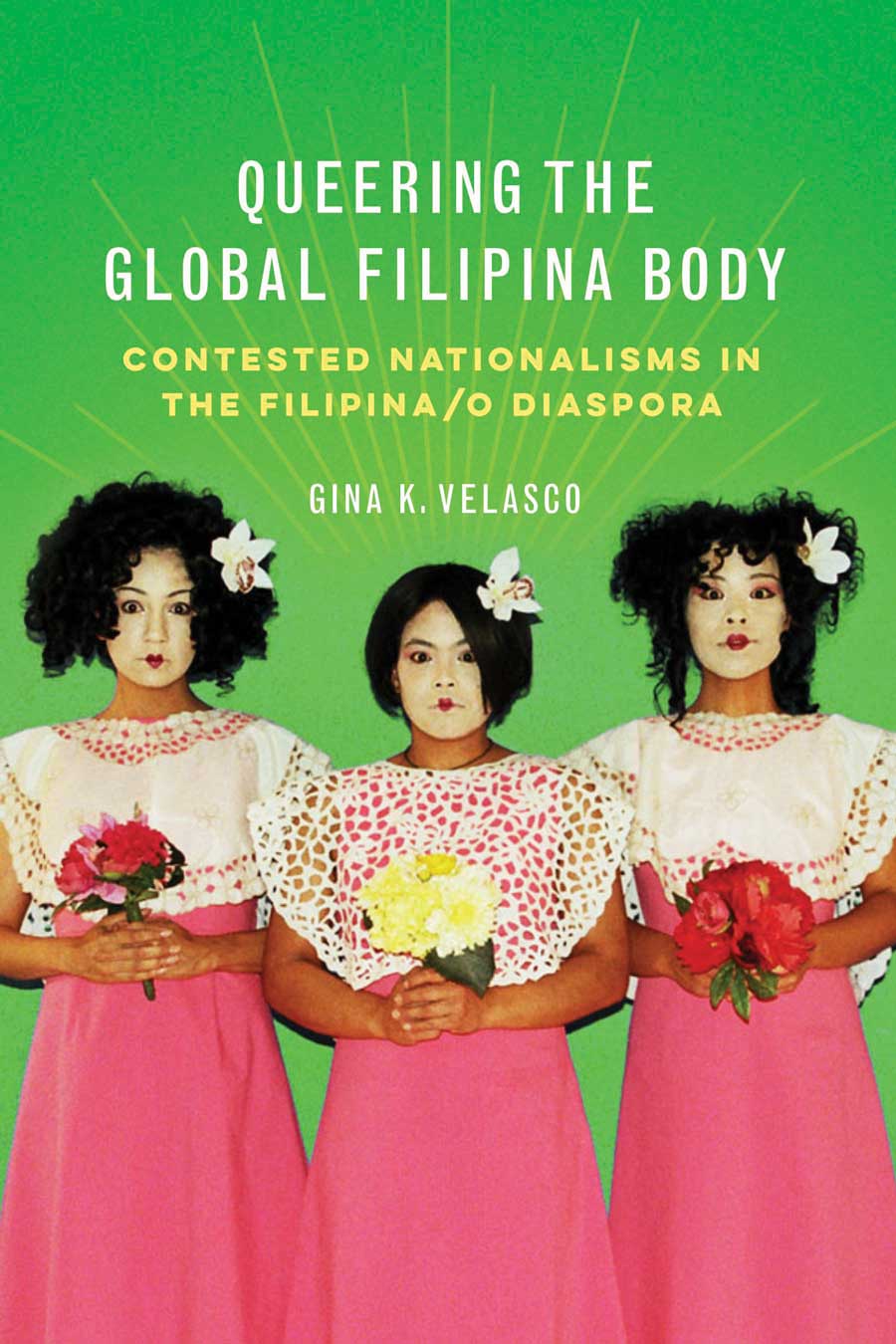
“Queering the Global Filipina Body: Contested Nationalisms in the Filipina/o Diaspora”
By Assistant Women, Gender, and Sexuality Prof. Gina Velasco
In the late 1990s, Velasco said she noticed that images of Filipina “mail order brides” and domestic workers became more prevalent in popular culture, from films like “The Adventures of Priscilla, Queen of the Desert” to jokes about “finding a Filipina wife” on the TV show “Frasier.” As the Philippine economy became dependent on remittances sent home from Filipina/x/o workers abroad, the figure of the global Filipina body also became prominent as a symbol of the Philippine nation within Filipina/x/o American cultural production.
Her new book, “Queering the Global Filipina Body” explores how Filipina/x/o American cultural production queers the Philippine nation by unsettling the gendered and sexual politics of popular and state nationalisms.
“Given the anti-Asian murders at massage parlors in Atlanta, Georgia, in March 2021, it is crucial for the broader U.S. public to develop an understanding of how Asian and Asian American women have been represented as providers of racialized and gendered labor, particularly sexual labor,” she said. “In addition, it is important for the U.S. public to understand the relationship between U.S. imperialism, Asian labor migration to the U.S., and sexualized and racialized stereotypes about women of Asian descent.”
Read the full story on Velasco’s new book.
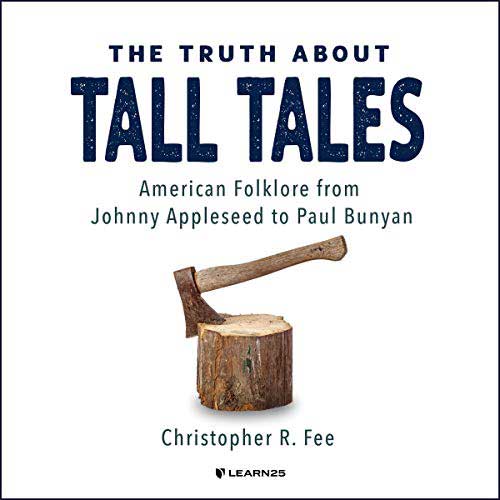
“The Truth About Tall Tales: American Folklore from Johnny Appleseed to Paul Bunyan”
By English Prof. Chris R. Fee
All cultures have their stories, and as different as they may be on the surface, most myths and legends have some important similarities, as well as the crucial differences that reflect realities of a given culture and that make a particular story vibrant and unique. American folklore is as vibrant and diverse as Americans themselves.
In this work, Fee explores traditional forms of folklore, myth, and legend in America, as well as new storytelling methods, and discusses the more recent development of genres such as conspiracy theory, urban myth, and “fakelore.” Fee concludes the audiobook by proposing that these kinds of stories represent a search for deeper truths, which suggests why American folklore still matters so much to so many.
“Storytelling provides answers to life’s persistent questions: All peoples everywhere ponder the same mysteries, and the answers developed by a particular culture can tell us a lot about that people,” Fee said. “A comparative approach to storytelling allows us to grasp the fundamentally human nature underlying this fundamental human activity: Thus, although the stories we tell may be different from those of the ancient Sumerians, or those of the Celts, or those of the Sioux, the basic concerns addressed by those stories are often very similar indeed.”
Fee composed this audiobook specifically for ENG 318: Saga, Myth, and Orality: From the Lost Gods of Britain to Contemporary Conspiracy Theories, which resulted in the student work available via the Gettysburg College Poplore Project.
Other books written or edited by emeritus faculty and staff in 2020:
- “Inward Baptism: The Theological Origins of Evangelicalism,” by Provost Emeritus Baird L. Tipson
- “Let Justice Be Done: Writings from American Abolitionists, 1688-1865,” by Prof. Emeritus of Philosophy Kerry S. Walters
- “Archaeology of a World of Changes: Late Roman and Early Byzantine Architecture, Sculpture and Landscapes,” co-edited by Emeritus Prof. of Classics Carolyn S. Snively
- “Airbnb, Short-Term Rentals and the Future of Housing,” co-authored by Emeritus Prof. of Sociology Barbara S. Heisler
By Molly Foster
Photo by Shawna Sherrell and courtesy of faculty members
Posted: 05/17/21

